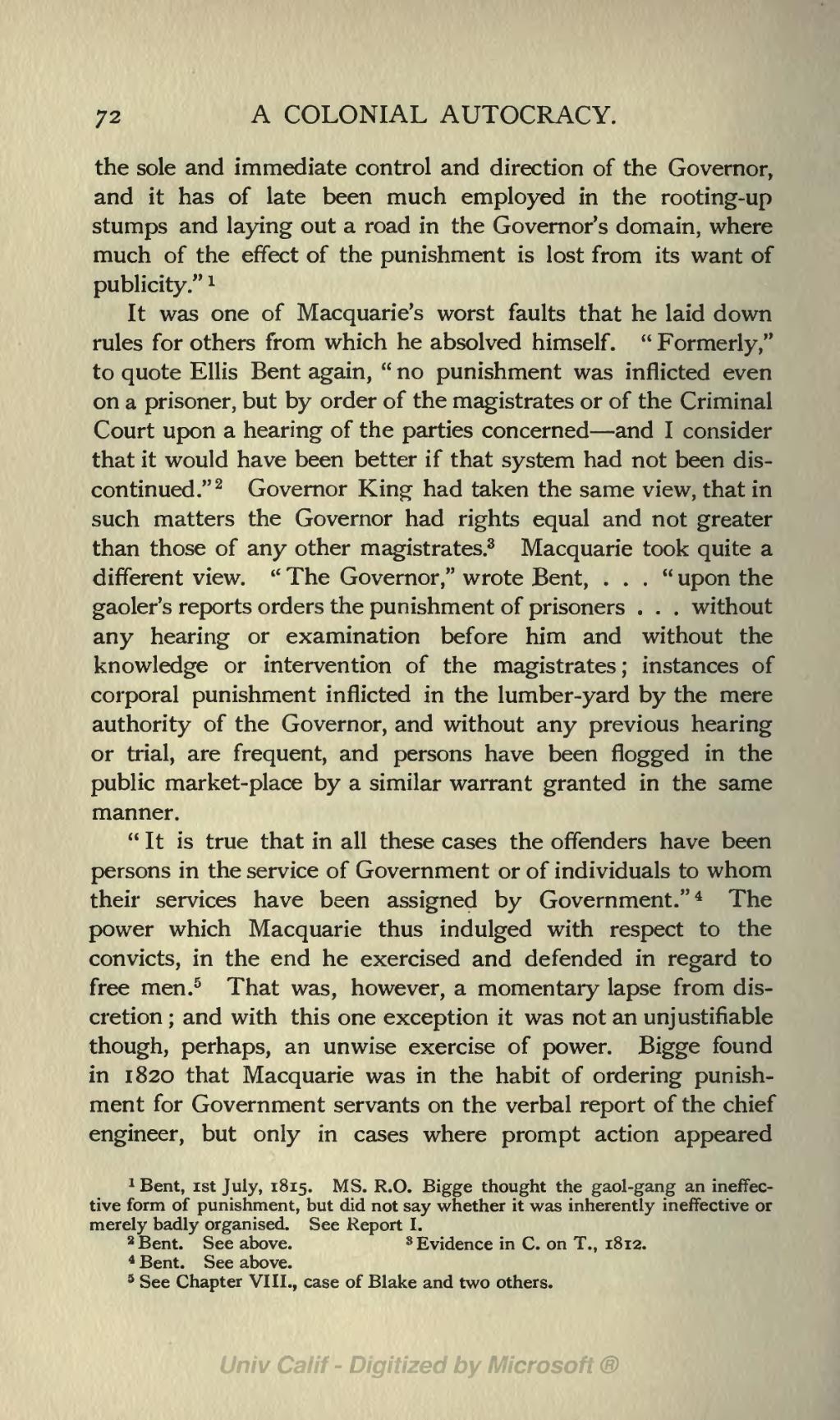the sole and immediate control and direction of the Governor, and it has of late been much employed in the rooting-up stumps and laying out a road in the Governor's domain, where much of the effect of the punishment is lost from its want of publicity."[1]
It was one of Macquarie's worst faults that he laid down rules for others from which he absolved himself. "Formerly," to quote Ellis Bent again, "no punishment was inflicted even on a prisoner, but by order of the magistrates or of the Criminal Court upon a hearing of the parties concerned—and I consider that it would have been better if that system had not been discontinued."[2] Governor King had taken the same view, that in such matters the Governor had rights equal and not greater than those of any other magistrates.[3] Macquarie took quite a different view. "The Governor," wrote Bent, … "upon the gaoler's reports orders the punishment of prisoners … without any hearing or examination before him and without the knowledge or intervention of the magistrates; instances of corporal punishment inflicted in the lumber-yard by the mere authority of the Governor, and without any previous hearing or trial, are frequent, and persons have been flogged in the public market-place by a similar warrant granted in the same manner.
"It is true that in all these cases the offenders have been persons in the service of Government or of individuals to whom their services have been assigned by Government."[4] The power which Macquarie thus indulged with respect to the convicts, in the end he exercised and defended in regard to free men.[5] That was, however, a momentary lapse from discretion; and with this one exception it was not an unjustifiable though, perhaps, an unwise exercise of power. Bigge found in 1820 that Macquarie was in the habit of ordering punishment for Government servants on the verbal report of the chief engineer, but only in cases where prompt action appeared
- ↑ Bent, 1st July, 1815. MS. R.O. Bigge thought the gaol-gang an ineffective form of punishment, but did not say whether it was inherently ineffective or merely badly organised. See Report I.
- ↑ Bent. See above.
- ↑ Evidence in C. on T., 1812.
- ↑ Bent. See above.
- ↑ See Chapter VIII., case of Blake and two others.
